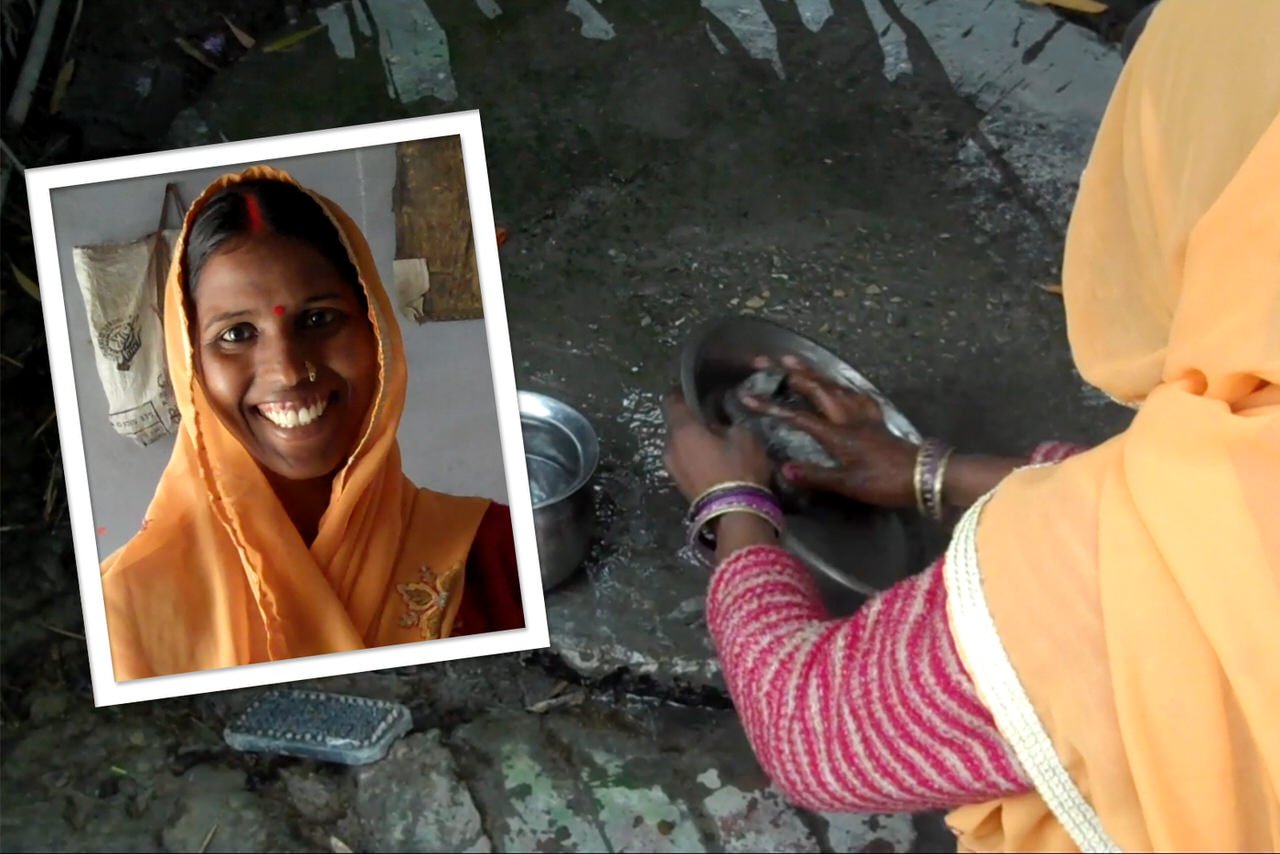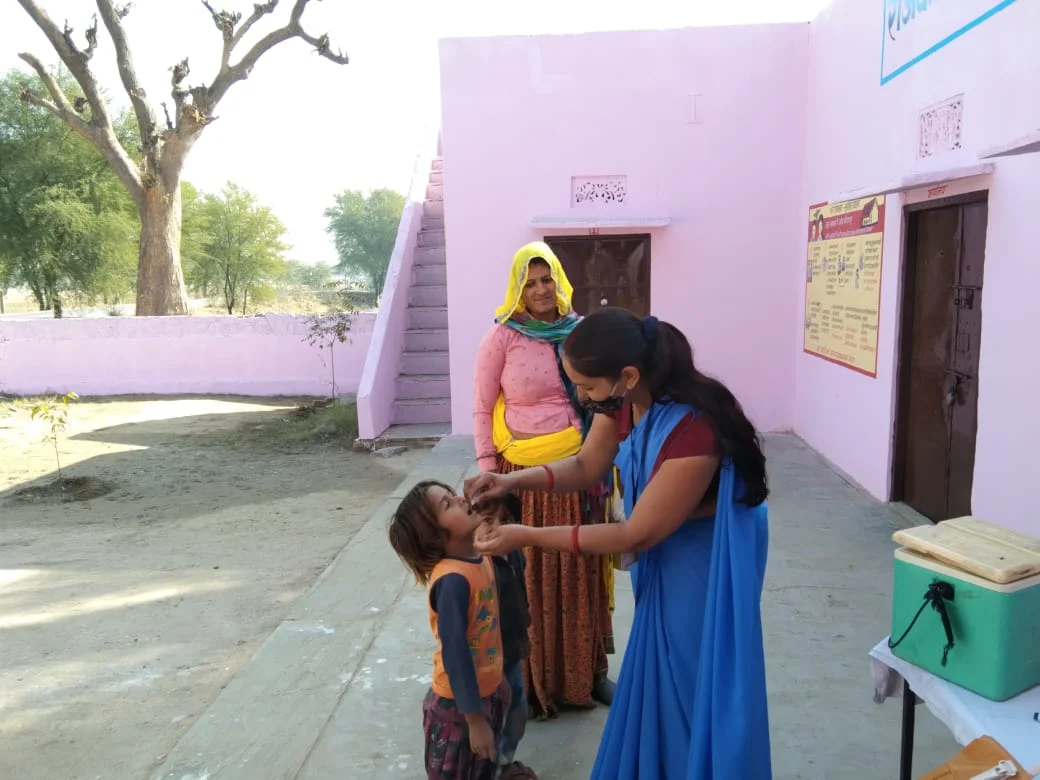Posted by Madhura Chakraborty
In rural Uttar Pradesh, one young woman brings her camera and lots of courage to dismantle patriarchy.
How long have you been married for?
-Seven and a half years.
How old are you now?
-Twenty-two. No, twenty!
And you have been married for seven years? How old were you when you got married?
In rural Uttar Pradesh, Sangeeta Devi talks about marital life with Community Correspondent Madhuri Chauhan. “I was fifteen when I got married. I would keep crying,” Sangeeta giggles. The mother of two cooks, cleans and works in the farm–all while covering her face with a veil. In course of the interview, we find out that she has never addressed her husband by name. When Madhuri asks her his name on camera, she asks him, sitting in the same room, off-camera whether she can address him by name. Onlookers egg her on and the first time in the seven year long marriage, she utters his name.
But this is not just Sangeeta’s story. It’s not a story of internalised patriarchy among women, or rural backwardness, or how patriarchy creates hierarchies between men and women. It is a story of resilience, of change, struggle and upheaval.
Also Read: ‘Make Men Wear Veils And They Will Understand Our Difficulties’
Madhuri Chauhan from Khalilabad, Uttar Pradesh was married off when she was nineteen. She had to wear sarees, sindoor and other traditional markers of a Hindu woman’s marital status. Soon after she was married, she was selected as a Video Volunteers Community Correspondent. She is putting herself through college on her own earnings. Her decision to continue working and studying after marriage caused a lot of friction in her family. As she became more gender aware she stopped wearing sindoor or covering her face with a veil.
“My husband’s grandmother tells me I look like a widow. I keep telling her, Muslim and Christian women don’t wear sindoor. How come their husbands don’t die?” Madhuri tells me. Despite attracting the ire of her marital family, it has not been immune to Madhuri’s strident advocacy for equality. “Today everyone in my family eats together. Previously, women would only eat after the men had finished eating. Many of the women in the family have also stopped wearing long veils that cover their faces,” she adds.
Madhuri is setting an example. She embodies how the personal is also, very much, the political. Today, thanks to her effort, many of Sangeeta Devi’s neighbours in her village who participate in her gender discussion club have openly rebelled against the practice of veiling. Discussions are the only way to make people realise the inherent inequality in many so-called ‘traditional’ practices. Madhuri’s video is an extension of her work to dismantle patriarchy, inside her family and out in the community. As her sphere of influence expands, we hope that there will be a time when women like Sangeeta Devi will not accept traditional norms unquestioningly because ‘that’s how things have been’.
Also Read: Is Sindoor A Symbol Of Marriage Or Patriarchy?
About the author(s)
Video Volunteers works to centre the lived experience of marginalised communities in public discourse and decision-making. Over the past 20 years, we’ve supported community-led reporting models in India and globally, enabling people to document issues affecting their lives and push for accountability. In India, our network of Community Content Creators has produced over 18,000 videos on local governance and social justice issues, contributing to more than 3,200 documented resolutions and impacting over 42 million people. Our work focuses on strengthening accountability, amplifying citizen voice, and using accessible technology to make institutions more responsive.




